Penn Today
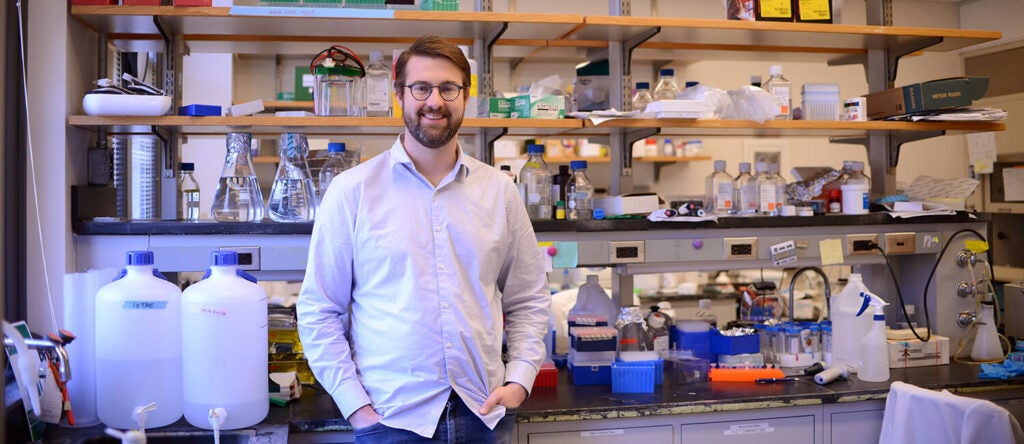
Coming together to solve the many scientific mysteries of COVID-19 (link is external)
As the rumblings of a pandemic began to be felt at the beginning of the year, scientists at Penn started work to develop a vaccine and assess possible treatments. But the scope of…
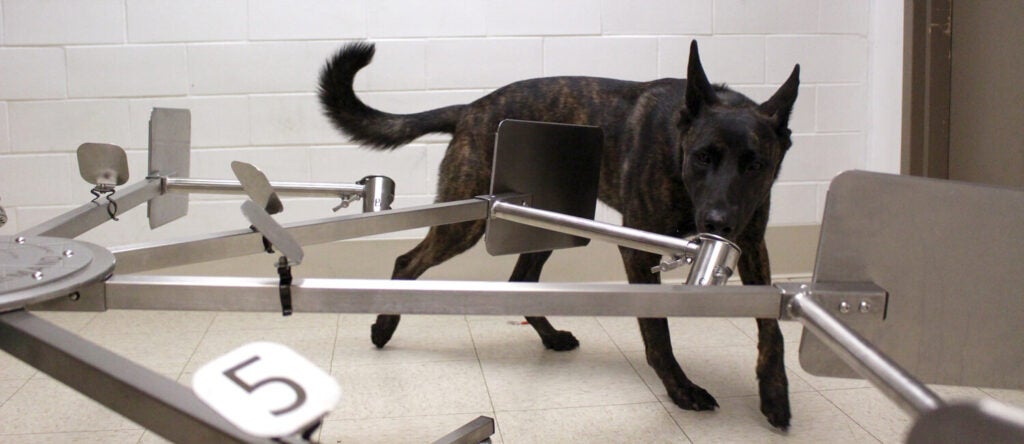
Penn Vet Launches COVID-19 Canine Scent Detection Study (link is external)
A pilot training program utilizing scent detection dogs to discriminate between samples from COVID-19 positive and COVID-19 negative patients is the focus of a new research initiative at Penn Vet.
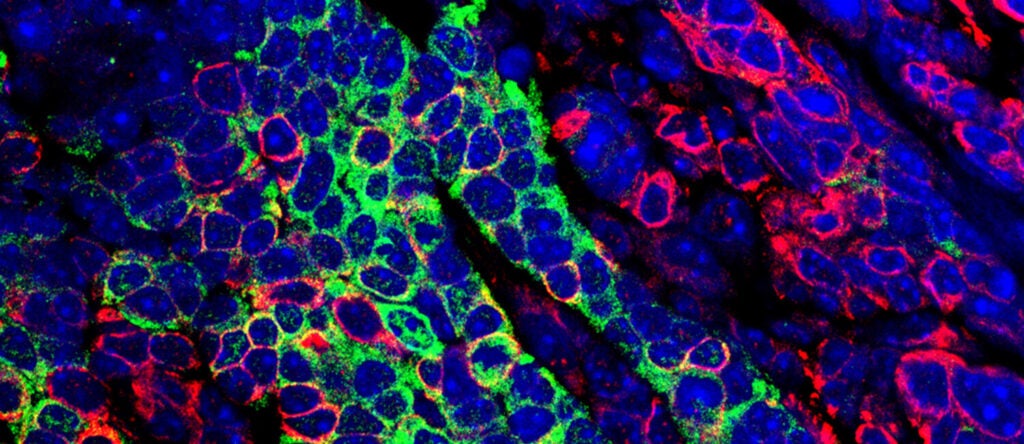
Tailoring treatment for triple-negative breast cancer (link is external)
Immunotherapies have revolutionized treatment for people with a variety of cancers. But when given to those with triple-negative breast cancer (TNBC), a particularly aggressive form of the disease, less than…
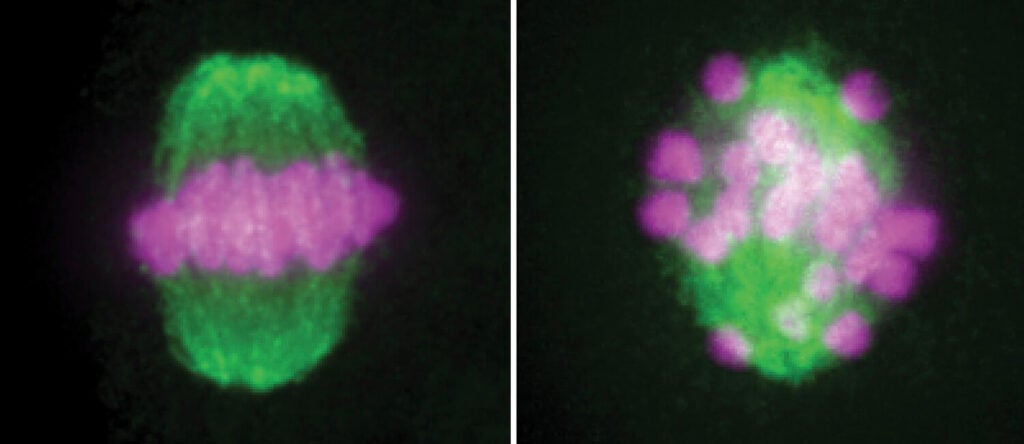
A critical enzyme for sperm formation could be a target for treating male infertility (link is external)
While some of our body’s cells divide in a matter of hours, the process of making sperm, meiosis, alone takes about 14 days from start to finish. And fully six of those days…
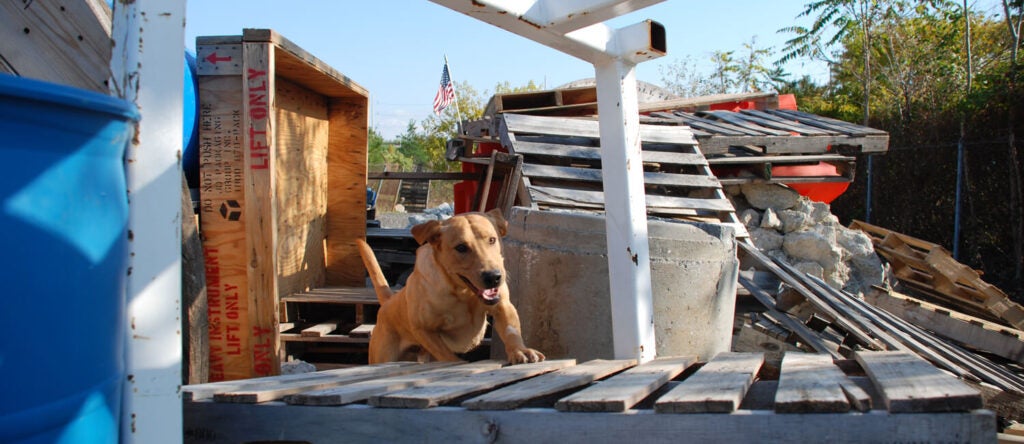
Eight new pups report for duty
More sure-footed and confident by the day, the U litter puppies of the Working Dog Center are not yet 3 months old, yet are already a month into their training to use…
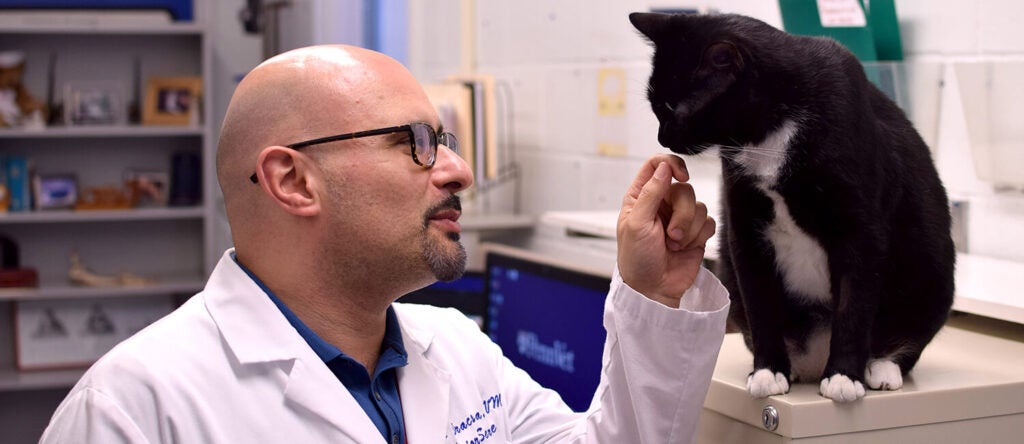
Demystifying feline behavior (link is external)
They know their names. We can read their facial expressions, sort of. And some of them really like having us around. These are among the purported findings of recent scientific studies aimed at…
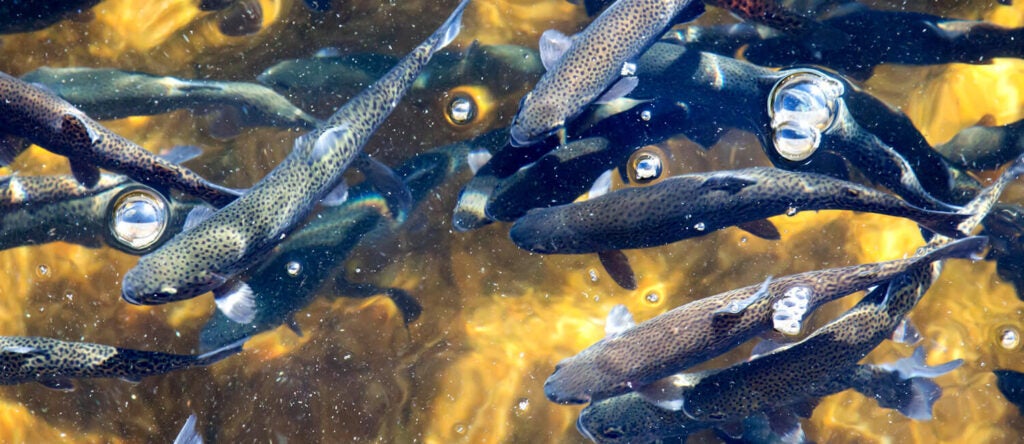
Answers to microbiome mysteries in the gills of rainbow trout (link is external)
While many immunologists use mouse models to conduct their research, J. Oriol Sunyer of Penn’s School of Veterinary Medicine has made transformational scientific insights using a very different creature: rainbow…
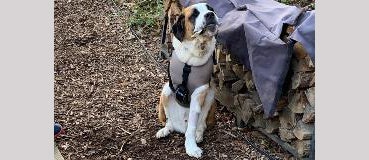
Treatment in a FLASH (link is external)
Radiation therapy to treat cancer can be grueling, requiring consecutive days of therapy over days or weeks. “When you talk to patients about coming in for 35 treatments, or seven…
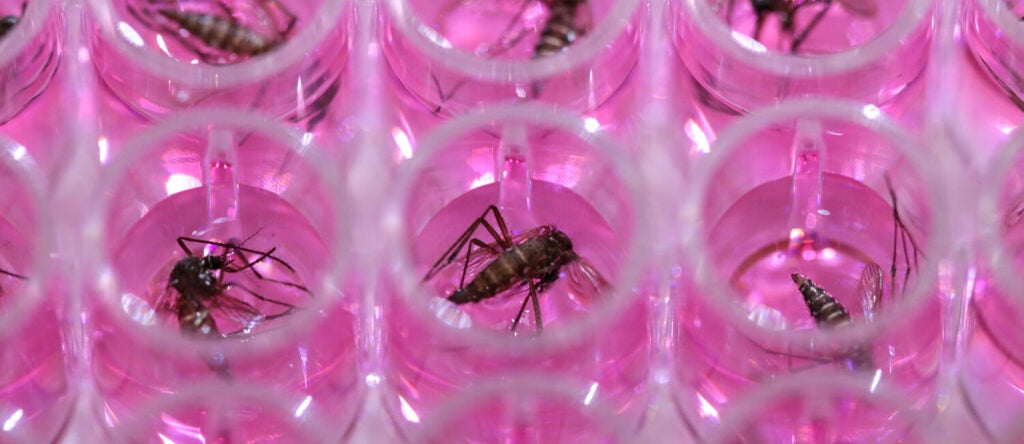
A roadblock for disease-causing parasites (link is external)
The threadlike parasite Dirofilaria immitis causes the debilitating canine heartworm disease. A related parasite, Brugia malayi, infects humans and is one of the parasites responsible for lymphatic filariasis, a neglected…

Taking on wildlife disease (link is external)
When wildlife biologist Matthew Schnupp began his career, the emphasis was on conserving habitat. “The paradigm of wildlife management for the last 20 years has been habitat management,” he says,…
Sort By
- Research Laboratories (1)
- ASMG Laboratory - Microbial Genomics (2)
- Lengner Laboratory (2)
- Anguera Laboratory (4)
- Wang Laboratory (3)
- Puré Laboratory (1)
- Wolfe Laboratory (1)
- Lennon Mucosal Immunology Laboratory (1)
- Equine Pharmacology Research Laboratory (1)
- Dou Laboratory (1)
- Brinster Laboratory of Reproductive Physiology (1)
- Hunter Laboratory (3)
- Harty Laboratory (3)
- Mason Immunotherapy Research Laboratory (2)
- Sunyer Laboratory (1)
- Scott Laboratory (1)
- Vaughan Laboratory (1)
- Research Institutes (4)
- Research Programs (1)
- Research Centers (1)
